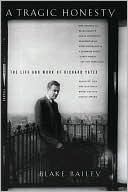

 |

|

The average rating for Tragic Honesty: The Life and Work of Richard Yates based on 2 reviews is 4.5 stars.
Review # 1 was written on 2009-03-30 00:00:00 Judith A. Balogh Judith A. BaloghRichard Yates was a self-loathing, bipolar, impotent, alcoholic hot mess who could write like nobody's business. I think I'm in love. |
Review # 2 was written on 2009-02-24 00:00:00 Brian Pritchett Brian PritchettIn retrospect this may not have been the ideal book to read immediately on the heels of Shade of the Raintree: The Life and Death of Ross Lockridge, Jr. Long about page 300 I found myself wondering if there was ever such a thing as a happy biography of a writer, one that doesn't go gonads-deep into ego, depression, bitterness, etc etc. Of course, there's no drama in being well-adjusted (or so I'm told). I was struck reading this life story alongside a new article in Poets and Writers that basically laments the absence of Keith Richardsonian excess among writers of the post-McInerney/Ellis generation. Why do we glamorize the wreckage? Is there not a method of creativity that can be seen as positive, invigorating, enlivening? Or are we so accustomed to the trainwreck that the smooth operator seems mechanical? I guess we'll wait for the recently announced Updike bio to answer those questions. None of these concerns should detract from Bailey's well-researched and written bio of Richard Yates, who twenty years after his death is finally enjoying the acclaim that he spent his last thirty years bitterly resenting he'd been denied. Yates remains a fascinating if somewhat repellant character if only bc the slow march to oblivion that basically occupied him from 1961 when Revolutionary Road first appeared to his death in 1992 (in Alabama no less) would seem to preclude any writing at all. And yet Yates was productive, with sterling successes such as The Easter Parade and competent if not epochal stuff like Young Hearts Crying. Unlike a lot of bios, Bailey does talk about the art, so in between descriptions of alcoholic seizures, emphysematic hacking, nuthouse stays, and endless cocklobbing (debilitated in later years by the impotence inflicted by the aforeskinmentioned), there are fine descriptions of the priestly revising and exactitude for which Yates lovers love him. In the end, what comes through is how emotionally stunted men of RY's generation were---a thesis one could glean from Eleven Kinds of Loneliness, of course, but nevertheless sad and frustrating. That said, it's also clear that Yates was a devoted if distant father, and the best quotes of the book come from his two oldest daughters, who talk honestly about their struggles. (One daughter, Monica, dated Larry David, which is how Yates came to be depicted as Alton Bennes on Seinfeld). There's also testimony aplenty here about how inspiring a teacher Yates was, which is good to see. In the hands of someone who cared less about his subject, the life of RY could've been sensationalized. Then again, the ideal for this audience won't be the Kitty Kelley sort. They'll be fans of RR and Eleven Kinds, and they'll probably read this shuddering at how capricious literary reputation is and how cruel not the Bitch Goddess of Success but her mythology is to our authors. |
CAN'T FIND WHAT YOU'RE LOOKING FOR? CLICK HERE!!!